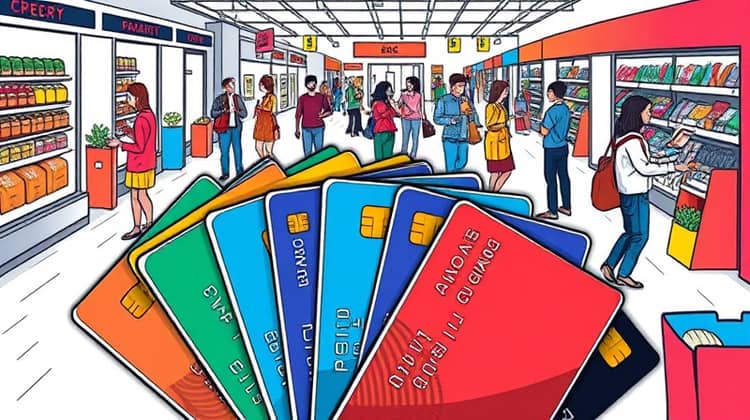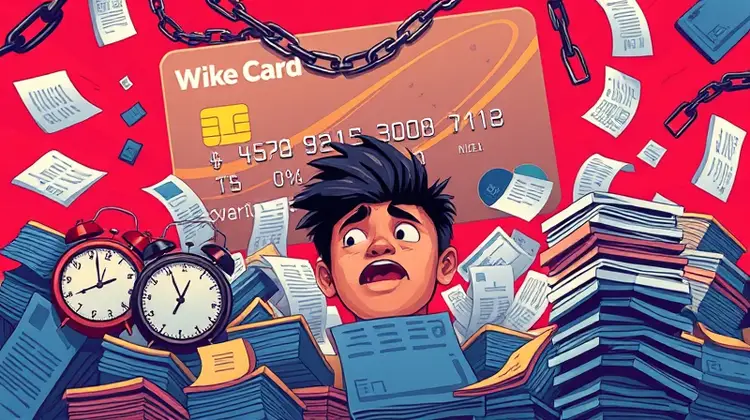As financial instruments, credit cards play a pivotal role in personal finance. They provide convenience and flexibility, allowing consumers to make purchases now and pay later. However, understanding how to effectively use and manage credit cards is crucial for achieving financial stability and planning for the future. This article will explore the various roles credit cards play in financial planning and provide insights on how to make the most of them while avoiding potential pitfalls.
From building credit history to managing cash flow, credit cards can enhance financial planning when used responsibly. However, misconceptions persist about their use, leading to debt and financial distress for some. By understanding their structure, benefits, and risks, individuals can leverage credit cards as a part of their broader financial strategies.
This article will cover the importance of credit cards in understanding finance, their role as financial tools, how they help in building credit, managing debt, budgeting, and saving.
Understanding Credit Cards

Credit cards are a type of revolving credit that allows consumers to borrow funds against a pre-approved credit limit. They can be used for a variety of transactions, ranging from everyday purchases to larger expenses. When a credit card is used, it creates a debt that must be paid back under the terms of the credit agreement, often supplemented by interest if not paid in full by the due date.
Every credit card comes with a unique combination of features, including interest rates, rewards programs, and fees. Understanding these features is crucial to avoid incurring unnecessary charges and to maximize benefits.
- Types of credit cards include general-purpose, store cards, and secured cards.
- Credit cards typically feature a credit limit that denotes the maximum amount a cardholder can spend.
- Interest rates on credit cards can vary significantly based on creditworthiness and card type.
- Rewards programs can include cash back, travel points, or discounts on specific purchases.
Being informed about how credit cards function and their associated terms is the first step toward leveraging them effectively in one's financial planning. When used wisely, they can enhance the financial experience for consumers.
Credit Cards as Financial Tools

Credit cards serve various financial purposes beyond just making purchases. They can function as an effective tool for managing cash flow, providing a buffer for unexpected expenses. For many consumers, credit cards are crucial for handling emergencies without dipping into savings accounts, which may be better used for long-term goals.
Additionally, credit cards provide a platform for rewards and benefits that can incentivize responsible spending. Many card issuers offer perks such as travel insurance, extended warranties, and price protection, making them a valuable component of financial planning when aligned with one's spending habits.
Building Credit with Credit Cards

One of the most significant advantages of credit cards is their ability to help consumers build a credit history. Establishing a positive credit history can lead to better interest rates on loans and mortgages, thus easing future financial transactions.
Using credit cards responsibly, such as making on-time payments and keeping the balance below the credit limit, contributes positively to one's credit score.
- Regular payments build a positive payment history—an important factor in credit scores.
- Keeping credit utilization low helps maintain a healthy credit score.
- Using a mix of credit types can enhance creditworthiness.
- Periodically reviewing credit reports allows consumers to track their progress.
Managing Debt with Credit Cards

While credit cards can be beneficial, improper management can lead to significant debt. High balances and missed payments can result in compounding interest, making it difficult to repay what is owed. Awareness and proactive management are essential to avoid this trap.
Implementing strategies for responsible card management can mitigate debt risks. By treating credit cards as a form of payment rather than a source of funding, consumers can maintain better control of their finances.
- Create a monthly budget to account for credit card payments.
- Pay off the balance in full whenever possible to avoid interest charges.
- Establish an emergency fund to avoid relying on credit for unexpected expenses.
- Limit the number of open credit accounts to simplify management.
Credit Cards in Budgeting and Saving

Credit cards can also integrate seamlessly into budgeting and saving strategies. Many budgeting apps allow users to link their credit card accounts, providing real-time spending insights and tracking. This visibility can empower consumers to make more informed financial decisions and identify areas for potential savings.
- Use credit cards for planned expenses to allocate budget funds efficiently.
- Set a monthly limit to control spending and stay within budget.
- Capitalize on rewards programs that offer cash back for frequent purchases.
By incorporating credit cards into a larger budgeting framework, individuals can enhance their financial management practices and even reap additional rewards.
Risks and Disadvantages

Despite their advantages, credit cards carry risks that can have serious financial repercussions. Overextending credit limits or missing payments can lead to high-interest debt that accumulates rapidly, potentially leading to a cycle of borrowing that is difficult to escape.
Awareness of these risks is crucial for anyone who chooses to use credit cards as part of their financial strategy.
- High-interest rates can lead to increased debt if balances are not managed.
- Fees associated with late payments, cash advances, and foreign transactions can add up.
- Credit scores can suffer due to poor credit card management, affecting future lending opportunities.
- Predatory lending practices by some credit card companies can ensnare consumers in unfavorable agreements.
Tips for Using Credit Cards Wisely

To maximize the benefits while minimizing risks associated with credit cards, consumers should adopt a strategy for wise usage. Understanding personal financial habits and creating guidelines can lead to improved financial health.
- Pay your balance in full each month to avoid interest costs.
- Set reminders for payment due dates or automate payments to ensure timely payments.
- Limit spending to amounts that can be converted to cash easily to maintain control over your finances.
- Review credit card statements frequently to monitor activity and catch any errors early.
Conclusion

Credit cards, when utilized responsibly, can play a significant role in one’s financial planning. Understanding how they work, establishing a disciplined usage approach, and being aware of their risks equips consumers to harness their potential.
From building credit to managing day-to-day expenses, the strategic use of credit cards can greatly enhance an individual’s financial journey. However, it is crucial to stay informed and strategic about their usage to reap the benefits they offer without succumbing to their potential pitfalls.
Ultimately, the key to successful credit card management lies in education, awareness, and self-discipline. By leveraging this financial tool wisely, consumers can pave the way for a more secure financial future.














